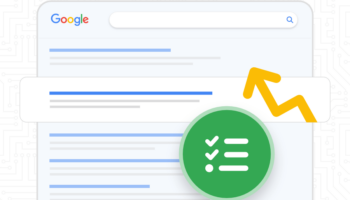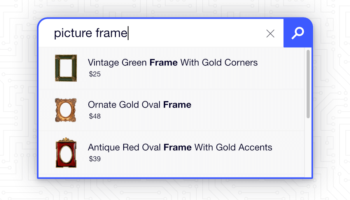Google Search results today are more than a page of blue clickable titles with grey text underneath. Now, you’ll see images, related questions, dropdowns, bold text, and video, all depending on your search query. This is made possible with a portion of embedded code on a webpage known as structured data. Structured data was introduced in 2011 by Schema.org, a collaborative project from Bing, Yahoo!, and Google—the three major search engines at the time (later, Russian-based search engine, Yandex, joined). Structured data is sometimes interchangeably referred to as schema markup, although schema markup is the index of structured data types you can find on the website above.
Why is Structured Data Important to SEO?
Structured data allows Google to understand that a recipe is a recipe, an event listing is an event, and a product is a product. When Google understands what a web page consists of and its intention, it can be displayed uniquely in the Google SERPs. There are hundreds of structured data types you can add to a web page. Structured data makes your Google result stand out, entices your audience with the right information before they even click on your website, and even contributes to a higher rank in the SERPs.
Some Recent Notable Structured Data Updates
Price Drop Information Is in SERPs
Structured data continues to be built upon, with new information constantly appearing in SERPs. One of the most recent additions is product price drops, which can be added to a web page with OfferShippingDetails structured data.
The Reimagined Structured Data Testing Tool
Google announced the Rich Results Test was out of beta in July 2020 and that the Structured Data Testing Tool would be depreciated. This announcement resulted in so much feedback from the community, and ultimately, Google decided to reverse this decision. The Structured Data Testing Tool is currently being reimagined and will migrate to a new domain to serve the community in April 2021. The tool will check the validity of Schema.org properties, but it will not show a preview of the Google Search rich result across devices—for that, you’ll refer to the Rich Results Test.
Structured Data for COVID-19 Updates
Structured data for COVID-19 updates is currently in beta. You can add SpecialAnnouncement structured data to your page in two ways:
- The traditional method of adding code.
- Via Search Console, without having to access your site’s HTML.
The second method is an accelerated (and temporary) way to add this structured data type to your website. When implementing via Search Console, there is no way to edit the announcement at a later date. Additionally, the rich result will only last for one month. The traditional method of adding structured data is recommended, although given time constraints and urgency, an accelerated way to amplify COVID-19 search results certainly makes sense.
As you can see, changes in our world influence the different types of structured data in development. There are sure to be more updates to structured data and rich results on the horizon as the web continues to evolve.





